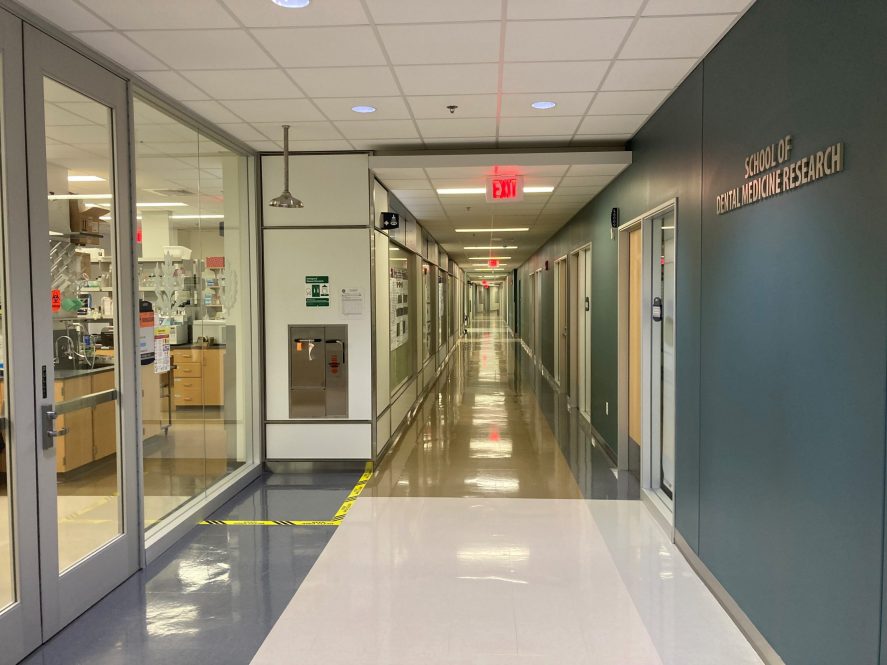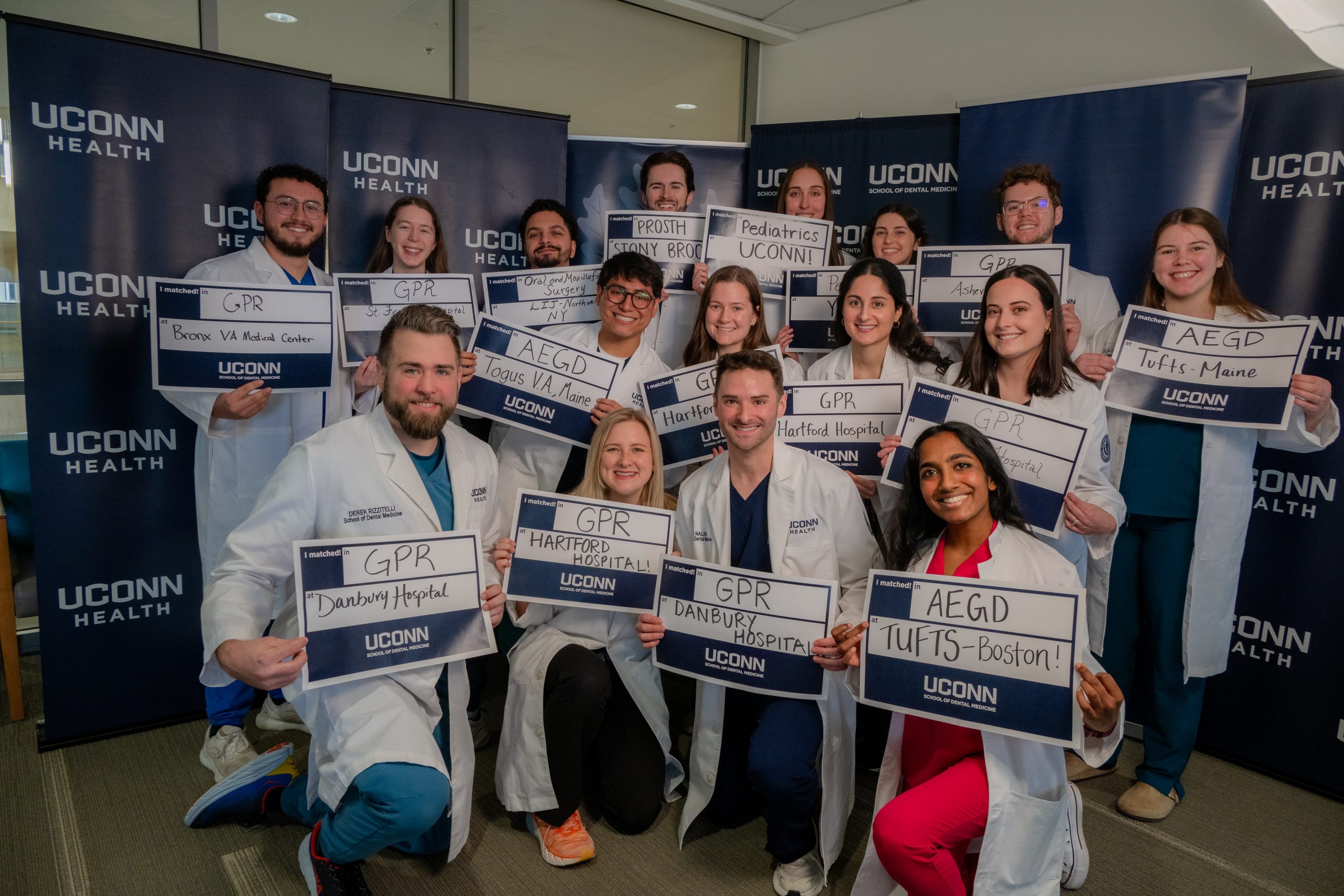The UConn School of Dental Medicine continues to be recognized for its strong research program.
The School placed No. 9 out of 70 dental schools in the United States in research funding from the National Institute of Health, which includes all of the federal agency’s institutes and centers combined, in fiscal 2023.
With $8.3 million in NIH grant awards, this is the fourth year in a row that the School of Dental Medicine placed in the top 10. This is a 4.4% increase in NIH funding from last year—as the School ranked No. 10 with $7.96 million in NIH funding in fiscal 2022. These rankings are published annually by the Blue Ridge Institute for Medical Research, based on NIH data for the NIH fiscal year which runs from October to September.
The School of Dental Medicine’s ranking of NIH funding is especially significant because the ranking is not adjusted for faculty size. The School has a relatively small faculty size compared to the dental schools ranked higher on the list. Furthermore, all eight dental schools ranked above UConn are affiliated with one of the only 29 U.S. universities with more than $1 billion in annual research expenditures.
“Despite our relatively small size, the high quality of our research program shines through, as evidenced by these rankings and other objective metrics,” says Dr. Rajesh Lalla, associate dean for research. “Along with higher research funding, over the last few years we have also seen several-fold increases in invention disclosures and patent applications from our faculty, which speaks to the innovativeness and practical implications of the research being conducted.”
In addition to the NIH, the School also receives research funding from other federal agencies including the National Science Foundation and the Department of Defense. Success rates for grant applications to these federal agencies are typically in the 10-20% range. Total extramural research funding received by the UConn School of Dental Medicine for fiscal 23 was $10.7 million, which also includes funding from foundations and industry.
Major research strengths at the UConn School of Dental Medicine include behavioral sciences, biomedical engineering, and skeletal development and regeneration. Additional active research areas include periodontal disease, oral microbiome, oral-systemic connections, temporomandibular joint disease, tooth movement, dental implants, diagnostic imaging, and oral side-effects of cancer therapies.
“This achievement is reflective of the collective excellence in the school’s research community,” says Dr. Steven Lepowsky, dean of the UConn School of Dental Medicine. “Our faculty, students, residents and staff are to be commended for their commitment to the discovery and application of new knowledge, which is one of the core missions of the School of Dental Medicine. Along with education, patient care, and service, I am confident that our research program will continue to grow and evolve in very positive directions.”



